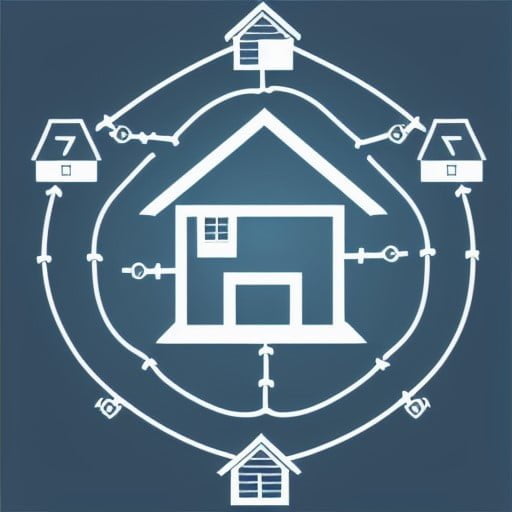How to secure my home network
In today’s digital age, protecting your home network is more important than ever before. Our homes are filled with an increasing number of smart devices, including smartphones, laptops, tablets, gaming consoles, and smart TVs, all of which are connected to the internet. However, with increased connectivity, comes the heightened risk of cyber threats, such as hacking, malware, phishing, and identity theft.
A compromised home network can lead to devastating consequences, including financial loss, exposure of personal information, and invasion of privacy. For this reason, it’s essential to take proactive steps to secure your home network. In this article, we will discuss why securing your home network is important and provide you with some top tips for protecting your home network.
Why Securing Your Home Network Is Important
Protect Your Personal Information: By securing your home network, you can protect your personal information from cybercriminals. This includes your banking information, healthcare records, social security number, and other sensitive data. Prevent Identity Theft: Cybercriminals can use your personal information to steal your identity, which can lead to financial loss and damage your credit score. Securing your home network can help prevent identity theft.
Keep Your Network Stable: A secure network is more stable and less prone to downtime and issues. By implementing security measures, you can ensure that your network is operating at optimal performance.
Protect Your Devices: A secure home network protects all the devices that connect to it, including laptops, tablets, smartphones, and smart home devices, such as security cameras, thermostats, and remote lighting. Stay Safe Online: By securing your home network, you can browse the internet more safely, without worrying about malware, phishing, and other cyber threats.
Get Trained to understand what to look for in case of cyber attacks
Top Tips for Protecting Your Home Network
Change Default Passwords: One of the most critical steps you can take to secure your home network is to change the default passwords on all your devices. Using a strong and unique password can make it much more difficult for cybercriminals to gain access.
Install Security Software: Install reputable antivirus and firewall software to protect your home network from malware, viruses, and other cyber threats.Enable Encryption: Enable encryption on your home network to encrypt all data transmitted between your devices and the internet.
Keep Your Software Up-to-Date: Keep your software up-to-date with the latest security patches and updates. This includes your operating system, antivirus software, and other applications.
Use a Guest Network: Set up a guest network to allow visitors to connect to your internet without giving them access to your home network.
Disable Remote Access: Disable remote access on your smart home devices to prevent unauthorized access.
Use Two-Factor Authentication: Enable two-factor authentication on your accounts for an extra layer of security.Secure Your Router: Secure your router with a strong password and change the default SSID name to make it less obvious which network is yours.
Limit Network Access: Limit network access to only those devices that need it and use MAC address filtering to control which devices can connect to your network.Educate Yourself: Stay up-to-date with the latest cybersecurity threats and trends to better protect your home network.
Protecting your home network is essential for safeguarding your personal information, preventing identity theft, and keeping your devices and data safe from cyber threats. By following the tips outlined in this article, you can make your home network more secure and enjoy a safer online experience. Remember, securing your home network is an ongoing process that requires diligence and regular updates, so make sure to keep up with the latest cybersecurity trends and best practices.

